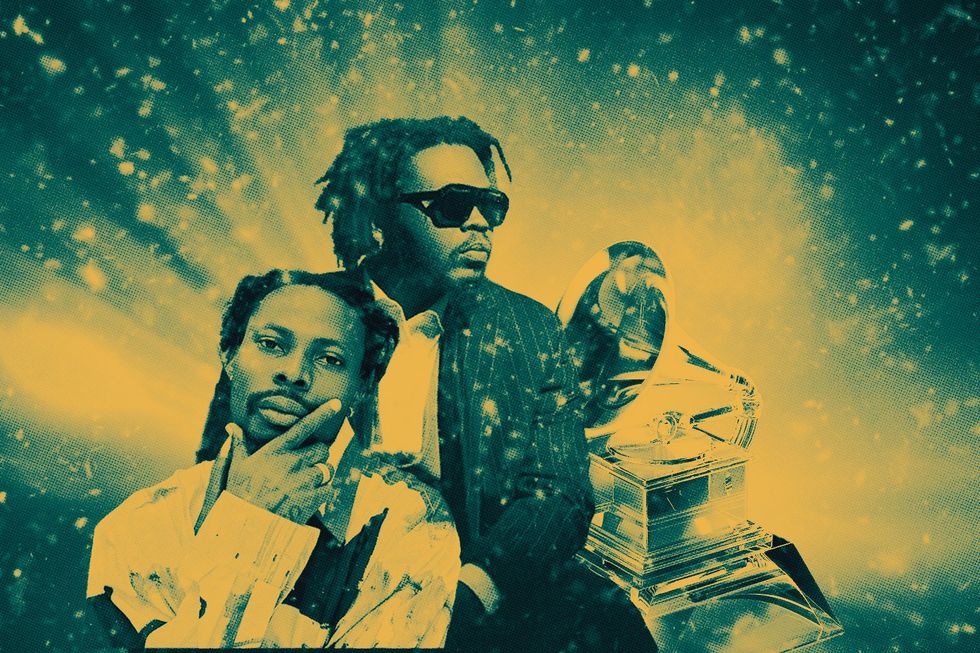
rewrite this content and keep HTML tags 
Read the previously published articles in our Grammys 2024 series on Tyla’s “Water,” Ayra Starr’s “Rush,” and Burna Boy’s “City Boys.”
Amapiano did not originate from Nigeria. That might sound like a trivial statement but it’s an important rejoinder to the lousy online tweeters who feel Nigeria should be taking ownership of a sound created and consistently driven forward by South Africans. Since amapiano found its way up west, its elements — most notably the log drum — have been widely co-opted and reinterpreted. That ‘piano is the driver for much of Nigerian pop, and party/club culture by extension, shows the level of reverence that should be accorded the genre and its roots.
On the smash hit song “Amapiano,” Asake oscillates between boastful co-opting and nebulous homage. It makes sense that such a song would come from the Lagos-raised artist, whose sonic identity has been largely defined by working the compositional ticks of amapiano (and even deep house) into a neo-Fuji aesthetic. In collaboration with primary producer Magicsticks, the duo have successfully carved out a distinct sound with notable yet dynamic tricks. More broadly, they’re at the heart of a musical style that continues to be replicated at a blinding pace.
Briefly setting aside cultural narrative, “Amapiano” is as inch perfect as a masterfully cut diamond piece. It’s representative of a new apex for Asake as a song-maker, littered with gleaming melodies made for belting out loud, caption-ready lines that stick to the roof of your brain from first listen, and a heater of a guest appearance from YBNL label boss Olamide. Rang in by an ear-catching metallic synth riff, it’s nearly three minutes of pure awesomeness.
Asake & Olamide – Amapiano (Official Video)
All the bells and whistles of an Asake song are present, a maximalist canvas that includes warm piano keys, gorgeously droning violin, interpolated organ notes, log drums that mimic the staggering groove of Omele drums, and a bevy of stacked vocals in call-and-response mode. If anyone needs the clearest vision of what ‘piano-inflected neo-Fuji is, you’d be hard-pressed to find a better one than “Amapiano.” On cue, Asake beams with pride at the work of his ears: “Omo my wrist e dey cold, e dey freezy o/dem no dey call me Mr Money for no reason oh.”
Unlike many of his songs that are colored by aphorisms in Yoruba with deep meanings, there’s no need for any decoding here. Even Olamide’s technically-tight raps and staccato flow are dazzlingly plain. This is the soundtrack to a good time that blends boastfulness with the intoxicating effect of Amapiano. Back to the cultural narrative, the song’s title itself raises eyebrows of distrust. While it’s impossible to gatekeep music and culture in this era of global connectivity via the internet, Nigerians and Nigerian music have a not-so-flattering history with tapping from broader sources across Africa, to the point of upending narratives about origins.
It’s impossible to really determine Asake’s intentions with “Amapiano,” or claim that it’s a blatant attempt at whitewashing. When the song was announced as a nominee for Best African Music Performance, there was chatter about Nigerian music being more instrumental to ‘piano than South Africans. None of it was stoked Asake, so it makes sense, in this moment at least, to deem “Amapiano” as a stunningly-crafted, self-assured slapper from the most electric artist of the past two years in Afrobeats.
From Your Site Articles
Related Articles Around the Web











